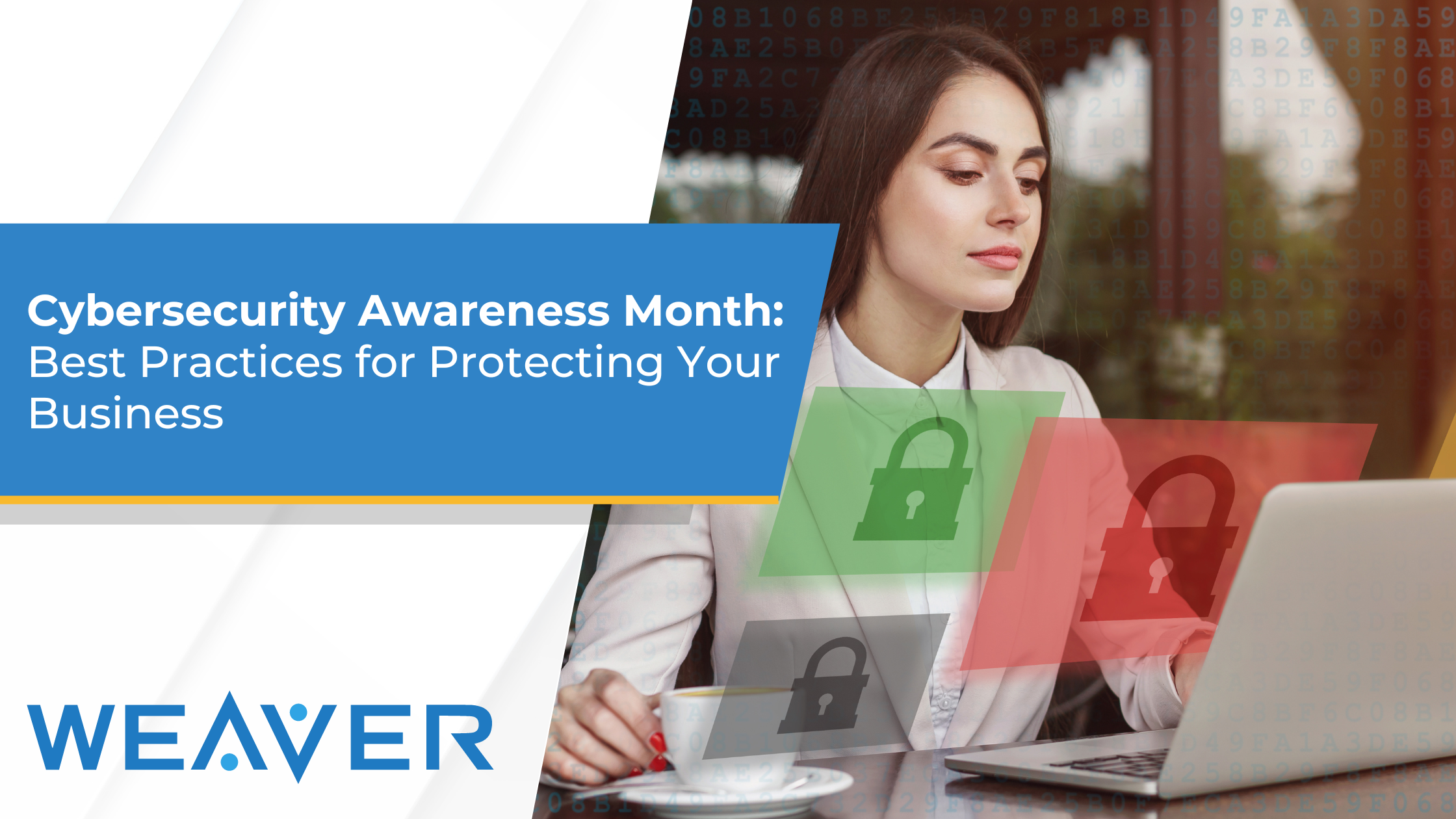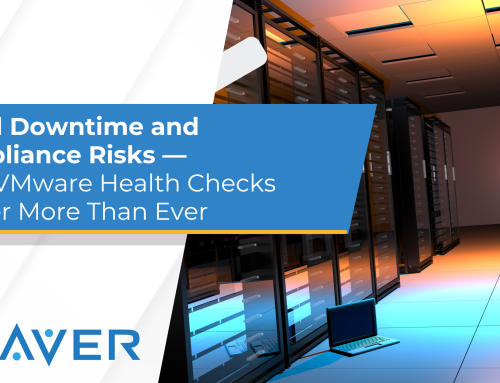October is Cybersecurity Awareness Month, a critical opportunity for businesses to focus on strengthening their cybersecurity defenses. In today’s world, cyberattacks are more frequent and sophisticated than ever before. Shockingly, 43% of cyberattacks target small businesses, and the average cost of a data breach exceeds $4 million—a price that many organizations simply cannot afford. This underscores the importance of implementing strong cybersecurity practices to protect your business from potential threats.
The Growing Importance of Cybersecurity
As digital transformation continues to accelerate, the threat landscape is evolving just as quickly. Cybercriminals are constantly adapting their tactics, using more advanced methods to exploit vulnerabilities in businesses of all sizes. The 2023 Verizon Data Breach Investigations Report revealed that 83% of data breaches involve compromised credentials or human error, showing that even small security lapses can have massive consequences.
Recent high-profile cyberattacks, such as supply chain breaches and insider threats, further emphasize the need for businesses to stay vigilant. No company is immune, and it’s essential to regularly assess and improve your cybersecurity posture to stay ahead of emerging threats.
Top Cybersecurity Threats Businesses Face
There are several types of cyber threats that businesses must guard against, but a few stand out as particularly dangerous:
- Phishing Attacks
Phishing remains one of the most common and effective cyberattack methods. Cybercriminals use deceptive emails and websites to trick employees into giving up sensitive information, such as login credentials or financial data. - Ransomware
Ransomware attacks are increasingly devastating for businesses. These attacks encrypt critical data and demand a ransom to restore access, often causing significant financial losses and operational downtime. - Insider Threats
Employees, whether malicious or careless, can pose a serious risk to your organization. Insider threats, either through deliberate sabotage or accidental data exposure, are often difficult to detect. - Supply Chain Attacks
Cybercriminals are also targeting the vendors and suppliers that businesses rely on, exploiting weaknesses in the supply chain to gain access to sensitive systems and data.
Best Practices for Strengthening Your Cybersecurity
To protect your business from these and other cyber threats, it’s important to adopt and maintain robust cybersecurity practices. Here are some key strategies to consider:
- Implement Strong Password Policies
Weak passwords are one of the most common vulnerabilities cybercriminals exploit. Implementing strong password policies and encouraging the use of password managers can help mitigate this risk. Additionally, adopting two-factor authentication (2FA) provides an extra layer of security. - Regular Software Updates and Patch Management
Cybercriminals frequently exploit vulnerabilities in outdated software. Ensure that all systems, applications, and devices are kept up-to-date with the latest security patches to reduce the risk of attacks. - Employee Training
Your employees are often your first line of defense against cyber threats. Regular cybersecurity training can help them recognize phishing attempts, social engineering schemes, and other risks. Knowledgeable employees can play a crucial role in preventing attacks. - Use of Endpoint Detection and Response (EDR)
Endpoint Detection and Response (EDR) tools are essential for monitoring devices and networks in real-time. These solutions can quickly detect, isolate, and respond to potential threats before they cause significant damage. - Backups and Disaster Recovery
Regularly backing up your data ensures that your business can recover quickly after a cyberattack. Additionally, having a comprehensive disaster recovery plan in place will minimize downtime and help you resume operations with minimal disruption.
Tools and Technologies to Improve Cybersecurity
Modern cybersecurity requires leveraging the latest tools and technologies to stay ahead of cybercriminals. Here are a few that businesses should consider:
- Artificial Intelligence (AI) for Threat Detection
AI and machine learning are revolutionizing cybersecurity by providing advanced threat detection capabilities. These tools can analyze vast amounts of data and identify abnormal behavior that may indicate a potential breach, enabling businesses to respond swiftly. - Network Segmentation
Network segmentation involves dividing your network into separate sections to limit the spread of an attack. By isolating critical systems, you can prevent malware from moving laterally within your organization, thus minimizing the impact of a breach. - Managed Security Services
Many businesses opt for managed security services to ensure continuous monitoring and protection. These services provide advanced threat detection and response, often including 24/7 oversight, which can help businesses mitigate cyber risks without requiring in-house expertise.
Conclusion
As cyber threats continue to evolve, businesses must take a proactive approach to cybersecurity. The consequences of a breach can be devastating, from financial losses to reputational damage, but implementing the right strategies can significantly reduce your risk. During Cybersecurity Awareness Month, it’s the perfect time to review and strengthen your cybersecurity practices.
At Weaver Technologies, we specialize in providing comprehensive cybersecurity solutions tailored to your business needs. From threat detection and network segmentation to employee training and disaster recovery planning, our team of experts is here to help you safeguard your business against cyber threats.
Don’t wait until it’s too late—contact us today to learn how we can help secure your organization and ensure you’re protected against the ever-growing cyber threat landscape. Let’s work together to keep your business safe.







